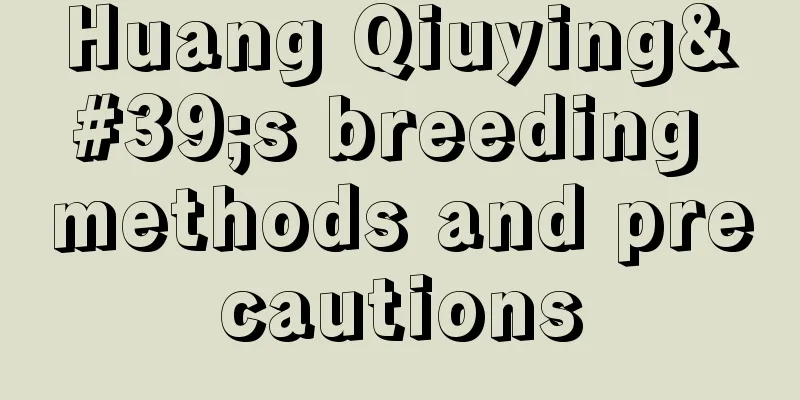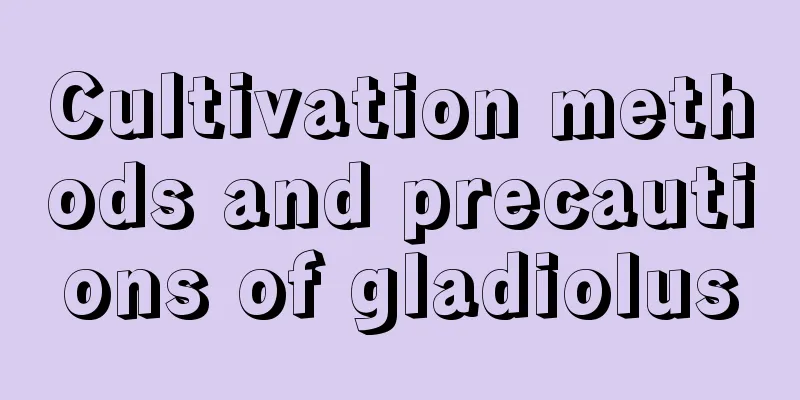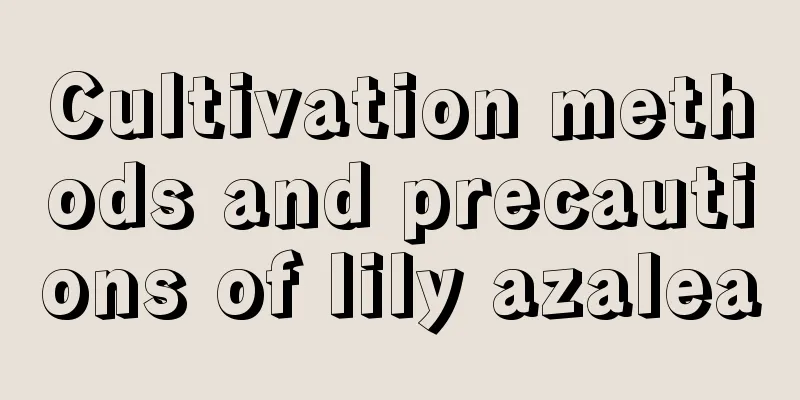Huang Qiuying's breeding methods and precautions

1. Maintenance methods1. Temperature: The latitudes of the areas where it is distributed are relatively low, so warmth is more suitable for it. Generally speaking, the range of 20 to 30 degrees is better. In addition, its adaptability is not very good because it is afraid of both cold and heat. Therefore, whether it is winter or summer, adjustments must be made. 2. Light: Huang Qiuying likes an environment with plenty of sunlight and is not shade-tolerant. Whether it is growing or blooming, it cannot be separated from light. If it is kept in a dark place for a long time, its flowering may be affected. In addition, it also needs to be placed in a well-lit location in winter. 3. Watering: The waterlogging resistance of Huang Qiuying is very poor, so water cannot accumulate. During the growth period, it requires relatively more water, but not too much. When the rainfall is very heavy, it must be drained in time. 4. Fertilization: Huang Qiuying is relatively resistant to barrenness and does not require too much fertilizer. You can choose soil with sufficient nutrients, and then there is basically no need for top dressing. 2. Breeding techniques1. Reproduction: In addition to sowing, the commonly used method is cutting. Early summer is the best time for breeding. It is better to choose young branches, as the chance of success as cuttings is higher. After inserting into the substrate, if the surrounding environment is kept suitable, it will take root in about fifteen to twenty days. 2. Pruning: This is a relatively important step. First of all, in spring, a relatively important task is pinching. However, if it is a seedling, it needs to be topped when four to five true leaves grow. Then there is the pruning of branches and leaves. The old ones can be cut off directly, and the dense ones can be partially cut off. 3. Problem diagnosis and treatment1. Diseases: There are two common diseases, one is "powdery mildew" and the other is "leaf spot", which are relatively common in summer. It can be controlled by drugs such as mancozeb, and supplemented by measures such as pruning. 2. Pests: There are two common types of pests, one is "aphids" and the other is "beetles", which can be prevented and controlled with insecticide. IV. Other issues1. Toxicity: It is non-toxic and does not emit any toxic gas. 2. Can it be grown at home? Yes, it is suitable as a potted plant and cut flower and can be placed at home. |
<<: Cultivation methods and precautions of yellow bract arrowroot
>>: Cultivation methods and precautions of flame orchid
Recommend
How to propagate camellia and what to pay attention to
Camellia propagation method The main way to propa...
It only takes 3 steps to regrow the roots of the money tree after it has rotted!
1. Cut off rotten roots When you find root rot, i...
How to grow Clivia in winter
Fertilization Winter is the growing season for Cl...
Jasmine cultivation techniques and precautions
Jasmine is a leader among flowers for its white f...
Do dahlias prefer shade or sun?
Do dahlias prefer shade or sun? Dahlia, also know...
How to propagate cilantro
Methods of reproduction The most common methods o...
How to prune tomato trees? Time and method for pruning branches and leaves
When to prune tomato trees Tomato trees can be pr...
How to tell if the branches have taken root?
Rooting is the first step after cuttings, but how ...
What to do if the leaves of green radish wilt
1. Bacteria If it is hydroponically grown, it is ...
How to grow moss
Growth habit Generally it requires around 20℃, an...
What kind of flowerpot is good for orchids?
What flowerpots look good with orchids? When plan...
The effect and acceleration of the drying and lignification of succulent roots
1. Function 1. After more than a year of cultivat...
How to grow hydroponic bamboo to make it more vigorous
Tap water can be used for hydroponic bamboo, beca...
When is the best time to repot the cassia flower?
Time to repot Gardenia The pot of the jasmine flo...
What to do if Osmanthus fragrans does not grow leaves
Reasons why Osmanthus fragrans does not grow leav...









